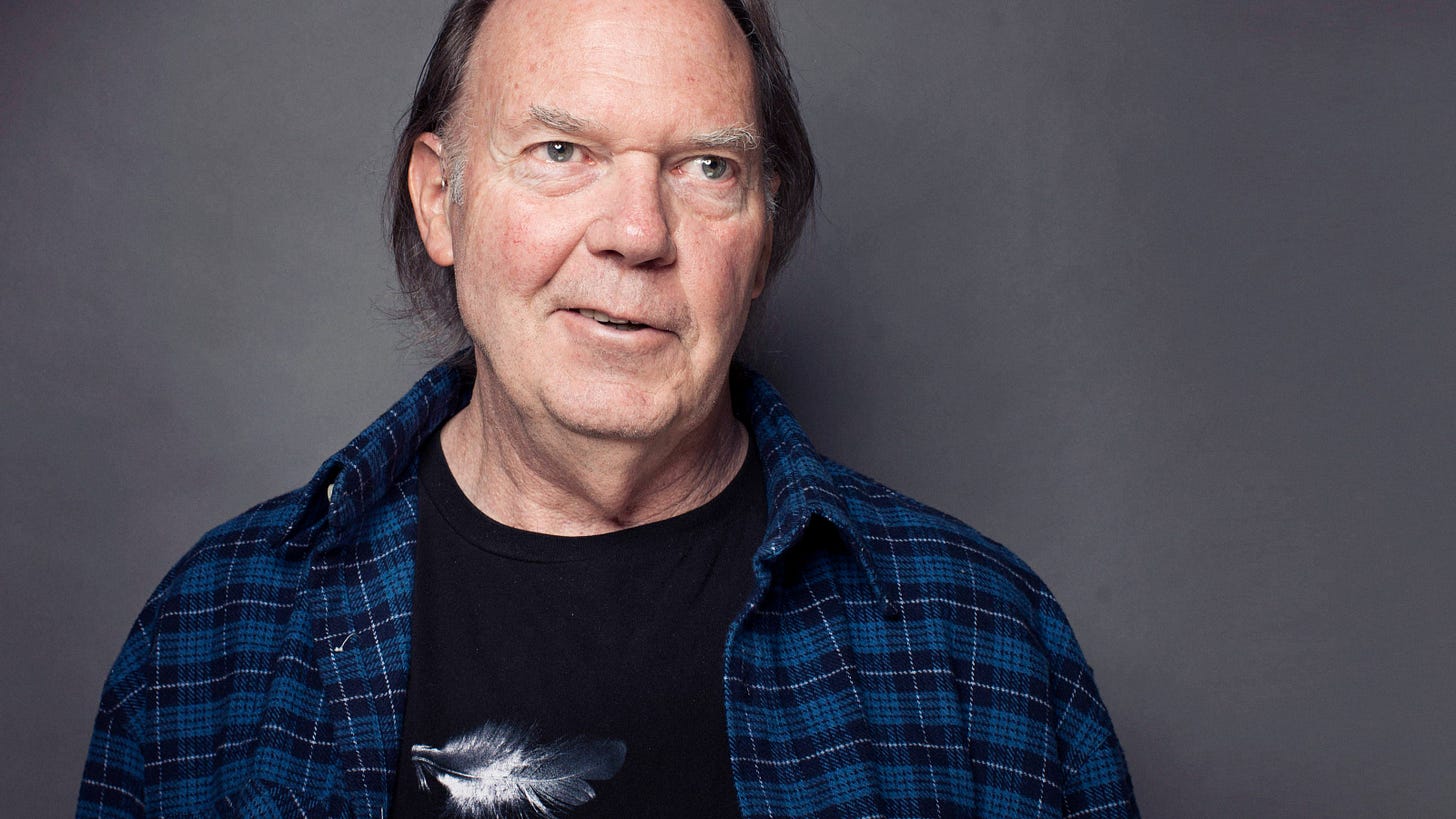Neil Young
Neil Young, born on November 12, 1945, in Toronto, Ontario, Canada, is one of the most influential singer-songwriters and guitarists of his generation, with a career that has spanned over six decades.
Known for his distinctive voice, profound lyrics, and innovative guitar work, Young has explored a wide range of musical styles, including rock, folk, country, and electronic music, while consistently standing out as a singular artistic voice committed to personal expression and social commentary.
Early Life and Initial Musical Endeavors
Young's interest in music was sparked at an early age, influenced by his father, a journalist and novelist, and his mother, who encouraged his musical interests. After his parents' divorce in 1960, Young moved to Winnipeg, Manitoba, with his mother, where he formed his first band, the Jades, during his high school years. By the early 1960s, he was performing as a solo artist in folk clubs and as a member of various bands, including the Squires.
Buffalo Springfield and Crosby, Stills, Nash & Young
In 1966, after a stint in Toronto as a folk musician, Young moved to Los Angeles, where he co-founded Buffalo Springfield with Stephen Stills, Richie Furay, and others. The band became a pivotal force in the development of folk-rock and country-rock, with Young contributing significant songs like "Mr. Soul" and "Expecting to Fly." However, internal tensions and Young's desire for artistic control led to his departure in 1968.
Young's next significant association was with Crosby, Stills & Nash, forming Crosby, Stills, Nash & Young (CSNY). This supergroup's blend of harmonies and activism resonated strongly in the late 1960s and early 1970s. Albums like "Déjà Vu" featured Young's iconic songs such as "Helpless" and "Ohio," the latter being a poignant protest against the Kent State shootings in 1970.
Solo Career and Collaborations
Neil Young's solo career took off with the release of his self-titled debut album in 1968. His early work, including "Everybody Knows This Is Nowhere" (with Crazy Horse) and "After the Gold Rush," showcased his talent for blending rock with folk influences. The 1972 release "Harvest," featuring hits like "Heart of Gold" and "Old Man," became one of his most successful albums, highlighting his ability to create music that was both personal and universally relatable.
Throughout the 1970s, Young's output was prolific and varied, including the raw and emotional "Tonight's the Night" and the experimental "Trans." His collaborations with Crazy Horse produced some of his most enduring work, characterized by a raw, unpolished sound that contrasted sharply with the polished folk-rock of CSNY.
Activism and Later Career
Beyond music, Young has been an outspoken advocate for environmental issues, indigenous rights, and small farmers, exemplified by his co-founding of the Farm Aid concerts in 1985. His later work continued to explore new musical territories, from the grunge-influenced "Ragged Glory" with Crazy Horse to the orchestral "Storytone."
In the 21st century, Young has remained creatively active, releasing albums that range from the deeply personal to the overtly political, such as "Living with War" and "Le Noise." He has also ventured into film, directing under the pseudonym Bernard Shakey, and launched high-fidelity audio ventures, reflecting his ongoing concern with audio quality and artist rights.
Legacy
Neil Young's legacy is defined by his unwavering commitment to artistic integrity and social activism. His influence on rock, folk, and country music is immense, inspiring generations of musicians and songwriters. Known for both his gentle acoustic work and his powerful electric guitar playing, Young's extensive catalog and his dedication to exploring new artistic avenues while addressing social issues have cemented his status as a music legend.

